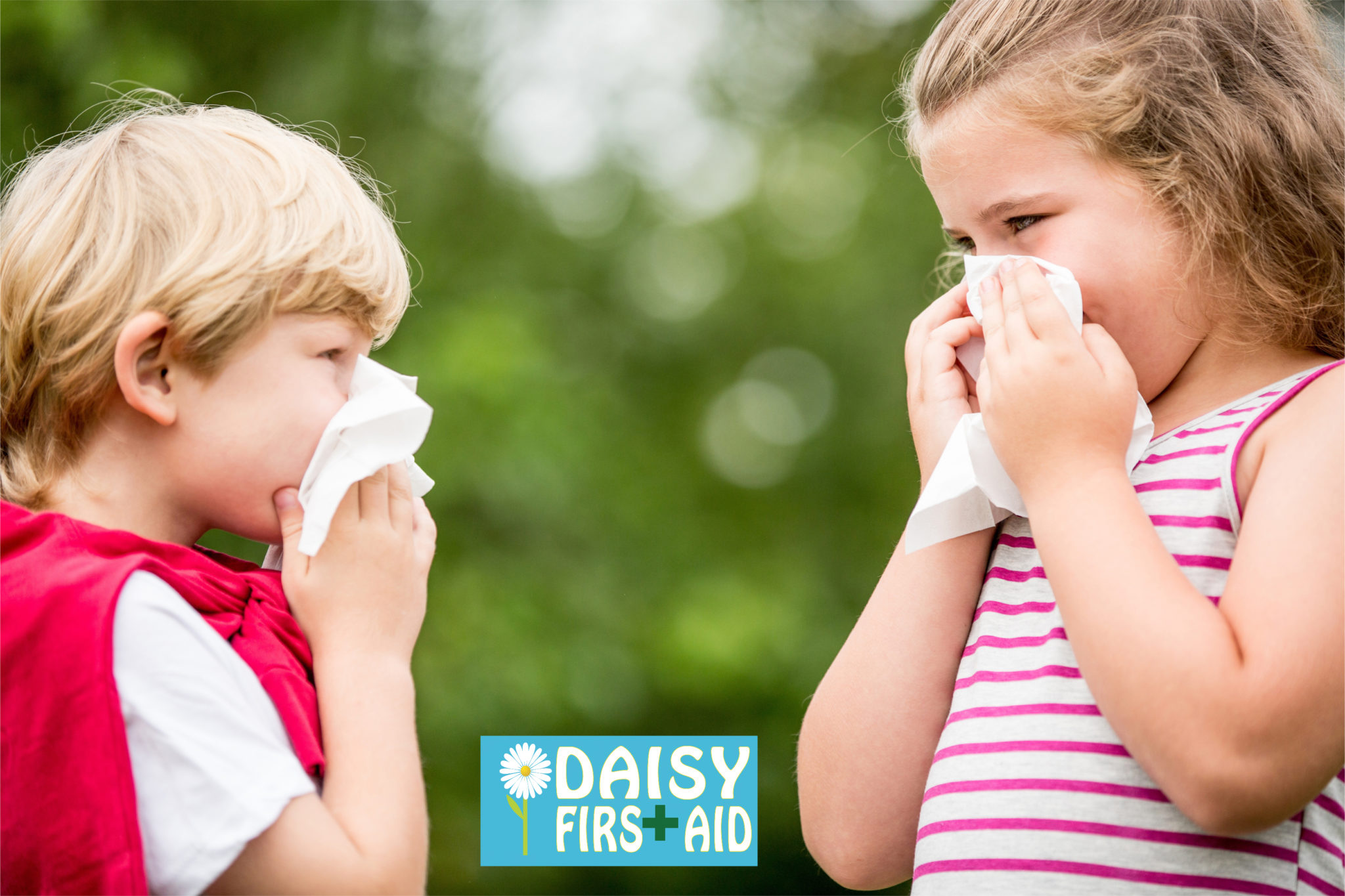Paediatrician Dr Nicola Weir and Daisy First Aid
The truth about the common cold and when you should seek medical advice for your baby or child.
So October has arrived.. A month where leaves turn a beautiful rich golden tone, children become excited candy-guzzling monsters for a night and in the midst of it all, we are finally getting the chance to satisfy our craving for a Starbucks pumpkin latte.
Having said this, October is also a time that doctors and many parents dread. Often, it starts with a runny nose, a cough or maybe a sore throat… To make matters worse, some go on develop fevers, aches and pains. Yes, you’ve guessed it.. it’s also the month of the common cold.
And it gets its name for a reason. Colds are indeed extremely common and are easily spread. As a result, younger children can have up to 12 colds in a year! This is a completely normal part of childhood.
So what exactly is a cold? In medical terms, it is an infection of the throat and upper airway caused by over 200 different types of germ, called viruses. These are continuously evolving. It is therefore impossible to immunise against them as a new one will be ready to pounce.
Professionals use lots of different names for colds and some make it sound more serious than it actually is. You may have heard of pharyngitis, laryngitis, bronchitis or upper respiratory tract infection (URTI). These are all just fancy terms for inflammation (swelling) of parts of the upper airways, which are in fact collectively the same as a cold!
So how to we treat this pesky cold? Alas, as disappointing as it may sound, there is no cure except for time and patience. Having said that, it is not all bad news. There are fortunately many simple things parents can do at home to ease the process. Over-the-counter paracetamol and ibuprofen are the most effective medicines since they not only relieve high temperatures but also treat any pain and discomfort. Some children seem to make a miraculous recovery after a single dose!
I would generally start by giving paracetamol since ibuprofen can irritate an empty stomach. They are however both extremely effective and you can alternate or even use them at the same time if need be. Another important tip is to make sure your children are drinking regularly. When they feel unwell they often refuse to drink and this can lead to dehydration. Try to give them small amounts more often to prevent this happening and ensure they are going to the toilet regularly.
As one would expect, smaller children have smaller airways which can become easily blocked. This can be a problem in babies who may struggle to breathe through stuffy noses, especially when feeding. One remedy that many find effective is salt or saline drops, which dissolve the mucus in the nose and can help to clear the airways. The great news is, they can also be bought over-the-counter.
Pharmacies sell many other cold remedies that come under various brand names. It is important to remember that these are only recommended in older children and that none of them actually cure the cold itself. At most, they may (or may not) help with various symptoms. If you feel tempted to use a cold remedy, please check that their active ingredient is not simply paracetamol or ibuprofen as this may mean overdosing your child on the same type of medicine.
Any attempts to avoid sharing your child’s cold will be well received by others, so please encourage good hygiene and wash any shared toys after use. Obvious it may seem but be aware that colds unfortunately spread themselves, even at the best of times. The good thing is that if your child is still wanting to play and share toys, it is a great sign that they are actually quite well!
So here comes the big question… Does my child need antibiotics? Antibiotics are medicines used to treat infections caused by bacteria, which is a completely different type of germ. In fact viruses do not respond to antibiotics at all, so giving them may cause unpleasant side-effects such as diarrhoea, without actually curing the cold. This explains why doctors often seem reluctant to prescribe them.
On that note, when should you worry that your child needs to see a doctor? Well there are a few easy things parents can look out for:
-
Viruses usually cause fevers, but if you feel your child’s fever persists or worsens despite paracetamol and ibuprofen, it is worth getting him or her checked out for other types of infection.
-
Keep an eye on your child’s breathing. If it is consistently faster than usual, with or without sucking in under the ribs… Or indeed if you hear an unusual high pitched sound each time your child breathes in, get him or her checked out urgently.
-
Finally, I would worry if your child was becoming increasingly drowsy or confused, especially once the paracetamol has had a chance to kick in. Some children are drowsy with fevers alone but it can also suggest dehydration or a more serious infection.
Otherwise, please do not fear. If your child looks generally very well between fevers and has none of the above symptoms, he or she should recover within 2 weeks… Or hopefully before the next cold sets in!
Dr Nicola Weir – UK Paediatrician


www.daisyfirstaid.com The content offered in this article is here to educate parents on health care and medical issues that may affect their daily lives. Nothing in the content should be considered, or used as a substitute for, medical advice, diagnosis or treatment.

